Pros and Cons Of Returning to the Moon
Our only natural satellite, the ‘moon’ has always been a pretty fascinating space-body, to man. Given its close proximity to the earth, unlike every other planet in the solar system; it is no wonder that various space expeditions have been planned and executed towards the visit, study and mapping of the moon.
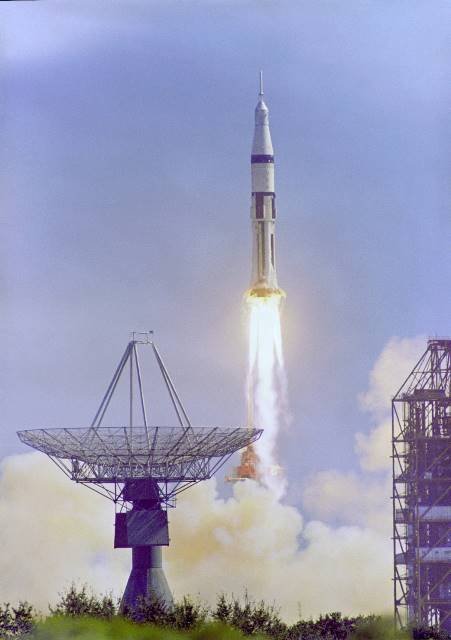
Several visits have been successfully made to the Moon over the last couple of decades. Between 1969 and 1972, 24 men traveled from the Earth to the Moon, for various scientific explorations. Of the 24 men that traveled, 12 of them landed on the Moon’s surface.
Ever since then, no manned expedition has reached the moon and despite the progressive development of space travel technology, the only visitors to have reached the moon from Earth have been unmanned probes.
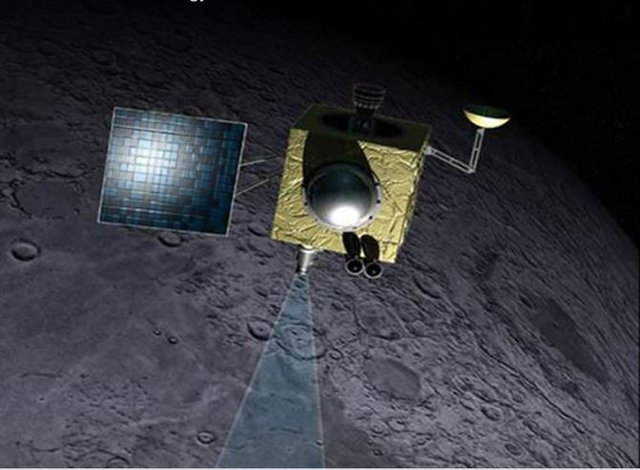
Given growth of science and technology in recent times, another manned mission to the moon poses a lot of benefits to the human race, but such expeditions are not without difficulties, which are impossible to ignore.
Pros
Research and Exploration
One massive benefit of returning astronauts to the Moon would be centered on the continued scientific exploration of Earth’s only lunar body.
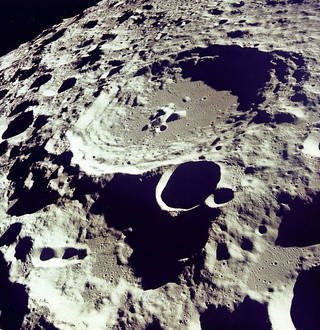
Of the six missions decades ago which successfully landed on the lunar surface, only a few square miles of the Moon’s surface was explored, and those studies and examinations were considered to be cursory.
The history of the moon, its mineral resources, formation and early history remain unknown. Hence, further explorations would yield valuable answers to many burning questions.
Unmanned probes can orbit the moon, take pictures of the moon’s surface, evaluate and analyze mineral composition of the crust; however, these examinations cannot be compared to the actual knowledge and physical analysis that can be gained from actual samples gotten from the moon’s surface.
Space Residency and Permanence
The most viable reason for a return to the Moon would certainly be the fact that such a move, especially of detailed and planned exploration and study, would be geared towards an evaluation of a permanent human habitation outside of Earth.
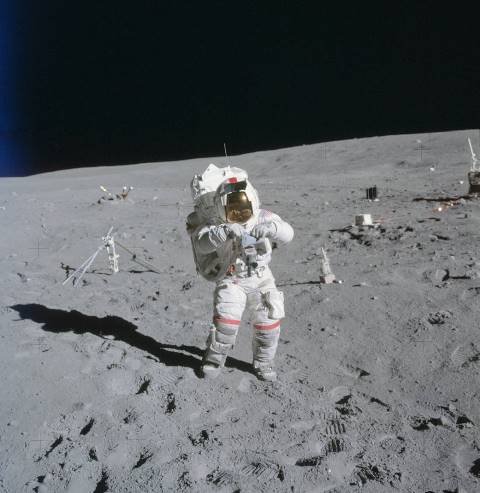
As it stands already, the International Space Station will remain a home to astronauts for a lot more years to come, however, it is important that we realize that any object hovering in space is necessarily a temporary one. Eventually such objects would become unusable and crash. Even the International Space Station (ISS) will crash into the ocean after it ends its mission.
However, a habitable base on the moon could be permanent and also an important stepping stone towards actualizing ‘manned’ studies and further exploring the Earth’s solar system.
Cons
Planning and Logistics
Without a doubt one of the biggest challenges of a potential return to the Moon revolves around time and money. Such a voyage requires a time-frame and schedule, as well as an insane amount of money which would be needed to get there.
The last manned spaceflight has been limited to the Earth’s orbit since 1972, and there are currently no spacecrafts certified for human flight expeditions that can reach the Moon.

Hence, creating a new launcher system, configuring and testing it, as well as going through all the steps that would be required to return astronauts back to the Moon’s surface could take years, as well as billions of dollars.
The National Aeronautics and Space Administration’s (NASA) budget has been under pressure in recent years. Therefore getting sponsorship and support for such a program would definitely be difficult, even though several polls as to the opinions of citizens and politicians, suggest that they are all in favour of man’s return to the lunar surface.
Objectives and Focus
Another challenge posed by man’s return to the Moon would be the effect the exploration would have on NASA‘s other objectives. NASA’s space program has had planet Mars as its long-term goal. But the challenges of an exploration to Mars and a return to the Moon are very much different.
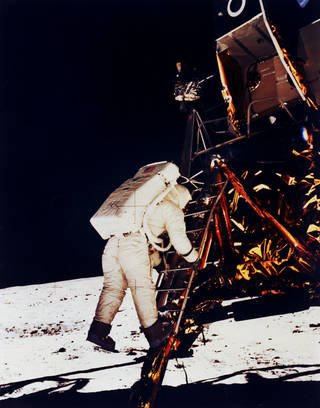
Consequently, any decision to shift resources and focus towards a return visit to the Moon could adversely affect the Mars space program, but not only that; the asteroid rendezvous mission and the International Space Station programs could also be negatively affected, given the demands and requirements of manning a landing mission on the Moon.
Although a substantial increase in NASA’s space exploration funding could help offset these challenges, but even such a move would prove difficult; as the funds in question could be astronomical, to say the least.
Source: 1
Thank you for your time and for reading my post.
If you found this post interesting, then kindly UPVOTE, RESTEEM and FOLLOW @rickie, for more quality posts.

Elon Musk will take us there for stayspace trips in our lifetime! :)
From my perspective, it's our "must do" to keep the spirit alive. Such a great projects create numerous discoveries, teach the whole generation of engineers and channel the interests of future generations as well.
Yes, you are right @alexs1320. The potential benefits would be seemingly outstanding, once we are able to effect the journey and subsequent studies again. Thanks for visiting and sharing your thoughts.
I really wonder why the US government doesn't invest more into the spaceprogram... I'm happy that SpaceX is a thing and they are actually working on manned missions to Mars.
Yea, the budget though is considered extremely huge. I guess that's why there's the reluctance from the US Congress to keep approving funds for the space program. And truly, SpaceX are doing great by launching their planned mission into space. The world would await their findings.
Thanks for dropping by @vitalbullet
yeah... space is cool, but we gotta stabilize shit on earth first
Lolz... @clumsysilverdad. I do agree with you. We can't neglect taking care of our immediate and only inhabitable planet Earth, while chasing knowledge from other world's. You are really spot on.
in my opinion , they should leave the moon alone... work more on getting to mars, for discovery and exploration, i just wont believe relocation is possible.
This post has received a 2.20 % upvote from @buildawhale thanks to: @rickie. Send at least 1 SBD to @buildawhale with a post link in the memo field for a portion of the next vote.
To support our daily curation initiative, please vote on my owner, @themarkymark, as a Steem Witness